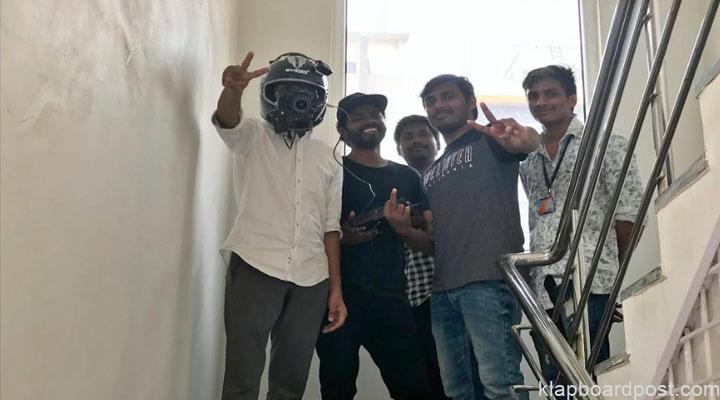Srivathsan Nadadhur
Deepak Reddy is a household name in the Telugu film industry, having assisted filmmakers on several plum projects and being a key player in taking quality Indian films to international markets through his distribution wing. He’s making short films in his pet genres for many years, while gearing himself for a directorial debut. His latest short film Manasanamaha, a glimpse of a feature film he’s set to make in the coming years, confirms that he’s a tasteful storyteller who’s here to stay. The film is interestingly conceptualised and visualised as its protagonist Surya looks back at his relationships with multiple women in his life – Varsha, Chaitra and Seetha, through an exquisite musical segment shot entirely in reverse. Though Surya ends up generalising the girls he has met, there’s a smart twist in the end that turns the table upside down and leaves you with a unique aftertaste…
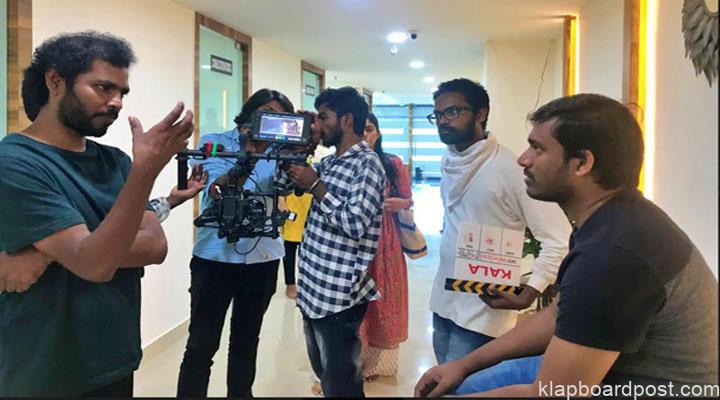
Manasa Namaha isn’t the most conventional of titles for a short in the rom-com space…
Manasa Namaha is a mix of Telugu and Sanskrit words – both together mean ‘salutations to the mind’. It felt it was very apt for the story, conveying how brain and heart influence our decisions. The title complements the film and is even a palindrome (it reads the same in Telugu in both forward and reverse) and the letters in the title appear in reverse during the end credits. The title appears in the end only after the girl tries to look at the relationship through her eyes. The title is not gender-specific – it’s to suggest that the guy and the girl have a perspective of their own when it comes to their relationships and that they need to be heard. Chai Kahani was another title had in my mind, but Manasa Namaha sounded more unique. Even if viewers don’t understand the title initially, they’ll make an effort to understand it later.
Do you think the film has shaped up to your imagination? Is there anything you would like to change?
I think I’ve conveyed the core of my story. There were production issues; I didn’t get the props I wanted. I had planned every nuance in the prop, but we could manage to present only a few. Like in the reverse shot where the girl slaps the guy and breaks up, a balloon bursts in the background to enhance the visual impact, a guy is blowing bubbles behind the lead pair, there’s smoke coming out of the coal blocks from the box used for ironing in residential colonies. In the sequence where the guy heads to a pub after the breakup, I wanted the atmosphere to be more colourful and cheerful, like a red coloured backdrop where every person in the space is happy but for the protagonist. I had many such ideas but when I see the film now, I feel it may have complicated the story. However, even though I have shot the film with a Sony A7, which is a DSLR, reputed cinematographers have asked me if I’ve shot with a Red camera. It made me happy.
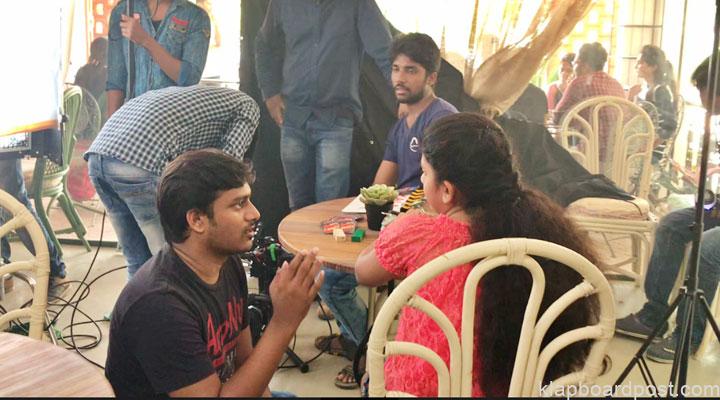
The idea to represent three seasons through the three love interests of the protagonist Surya – Chaitra, Varsha and Seetha is refreshingly poetic…
My idea initially was to make a five-minute musical with voice-overs introducing the characters, where the film starts on a sad note and becomes happier by the moment. I later felt that this was only a musical and didn’t have a story in it and wondered if people would care. I felt the short film was a better medium to give more flesh to their characterisation, even if it was a glimpse. Although it started as a single love story, I needed more episodes in the protagonist’s life, like the college portion, to establish his part more concretely. Whom does he tell the stories to? That’s how the final character Seetha came in. I am a great fan of 500 Days of Summer. Even in that film, Summer is the female protagonist’s name and has nothing to do with the season. But I feel Indian traditions have a richer context with names like Chaitra, Varsha, Greeshma and Seetha. I wanted to beautify and represent those names through the female characters. The film happens mostly during summer, it is referred to as the Chaitra masam traditionally and the protagonist has the same name – the costumes, the props and the colour palette with the use of yellows and greens contribute to the vibe. Though we used equipment (for artificial rain) for the rainy season, it surprisingly rained while we shot. The final phase is one that features Seetha –we intentionally used greys and other dull pastel colours because it complements winter. My basic intention was to shoot a musical in reverse, the seasonal context to the women in the male protagonist’s life was an afterthought.
Wasn’t it a disadvantage that you were making a short film in a genre that the digital media is excessively populated with?
Be it short films or feature films, what we end up making mostly are romantic comedies. We force a love story in a film regardless of the genre it belongs to. Even I had the fear if Manasa Namaha would be written off as any another romance. As an aspirant filmmaker, I enjoy horror and thriller genres the most. My perspective changed when I entered the distribution business – I understood you can’t deviate from action, romance or family dramas if you want the audiences to watch your work. Regardless of how badly you narrate a love story, there’s an audience for it. Even if a horror film is told brilliantly, the spectatorship remains limited. Though I stuck to romance, my idea was to create a mark with my storytelling. The heart of the film lied in the way I narrated it. Thrillers are already complicated and the audiences can get easily confused if we try to be very novel with the execution. I don’t want people to watch something because they haven’t understood some of it in the first viewing. My only hope is to make someone re-watch my work because they like it. Romance is a universally accepted genre. The film starts off with a guy trying to stereotype women, but the ending shows that women can do the same too if they tell the story from their perspective. The film offers glimpses of stereotypes associated with men in relationships – never arriving on time, they take women for granted once the relationship takes off. The girl child in the film is listening to the guy in the background and also says, ‘we can stereotype you the way you do to us’.
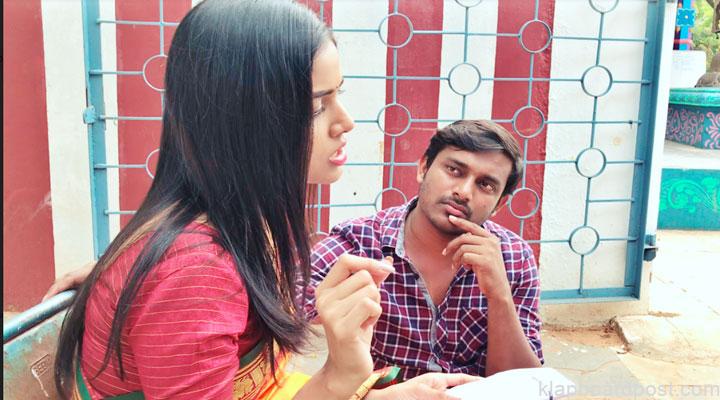
The way you began the short film with a guy’s perspective of his romantic escapades and ended with the girl’s point of view with the relationship was truly the clincher…
Surprisingly, most of the Telugu audiences somehow didn’t get the film and the climax – they liked it but thought the guy was merely generalising all women. The film gives an interesting twist to the gender generalisation and guess our audiences aren’t used to it because our films too don’t look at romances that way. Maybe some spoon-feeding was necessary, it’s a feedback I’m definitely taking for my feature film. Tamil audiences were extremely receptive for the open-ended climax. I’m a great fan of Stanley Kubrick, he leaves you with question marks. Films grow on you only when they leave you with questions. Everyone is asking for a sequel to Manasa Namaha and that’s the audience whom I want to get to watch my feature film. I have many other scripts in my mind but I’ve put them aside and extremely committed to making Manasa Namaha into a feature film. It has scope to be made into a web series as well, it has the canvas and the span to work in the episodic format. I have already written it like a feature film and my priority is to make it that way.
The ending, as you say, has evoked interesting responses…
I gave an ending where audiences expect some more, I left them with questions. Even as the short film ends, you are engrossed about the girl’s perspective – the series of animation slides in the end throw a hint of her feelings. The girl expects too much and is trying hard to make the relationship work, while the guy is relatively carefree, preoccupied with his phone and not paying attention to her at all. Ultimately people are liking it because I feel it’s a story presented well. A lot of people talked to me about the film, I’ve received thousands of messages about it but very few have understood the metaphors.
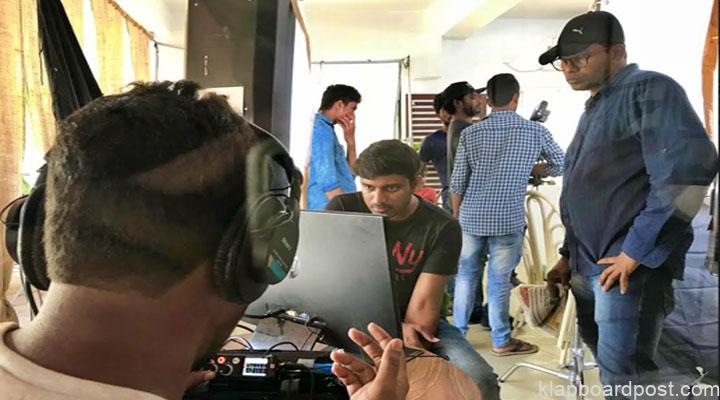
What inspired you to visualise the entire relationship of the protagonists in reverse?
I have seen several instances and people who’ve gone through breakups, the hardships they go through while coming out of it. Guys want to hold onto the happy moments despite the differences with the girl. After the breakup, the guy generally takes a long time to move on. The moments shot in the reverse is a visual exploration of his mind of how he looks at the relationship after it ends. I’ve not commented if it is right or wrong, it’s just like a lookback and that’s only his view of the relationship. The reverse shot is the story that’s unfolding in his mind. It was an interesting way to end the story with happiness because love always gives a great high when it begins.
Ultimately, Manasa Namaha has been dubbed in Tamil as well, it’s a rare feat in this space..
The film has gone particularly viral in Tamil, all we did was to put out a tweet through Gautham Menon and didn’t even promote it. He was extremely happy with the way the short was trending. While we wanted Anirudh Ravichander to initially sing a song in the film, we went ahead with Anurag Kulkarni when it didn’t materialise. Gautham felt that the film was good enough on its own merit. The dubbing was very professional – I truly liked the voices that Varsha and Chaitra had. The film has opened new doors to me and I’m happy to share that my debut feature will be an extension of this story as a Tamil-Telugu bilingual.
Coming back to the short, I made the film in Telugu ultimately because it’s a language I relate to. ‘Gallo kattukunna medalaina nilabadatayemo gaani, premalo kattukunna kotalu eppudu koolipothayo evvariki teliyadu’ is a line I can only write in Telugu. The film may have been dubbed in Tamil and in other languages, but I told it in a format which appeals to me. Gautham Menon felt that my story had no language barrier and that it would be relatable universally – all we need is a writer who can translate it well. I may not like dubbed films in general, but certain audience tends to prefer to watch something in their own language more than any other. It widened my perspective of a viewer when Gautham Menon expressed his interest to dub it. I wanted to remake the film in Tamil initially but lockdown didn’t give us a chance. The film is getting dubbed in Kannada next and later Hindi. I believe the reach would work best in Hindi, because they don’t make romances, poetic stories anymore in the language and people would be more eager to watch it.
